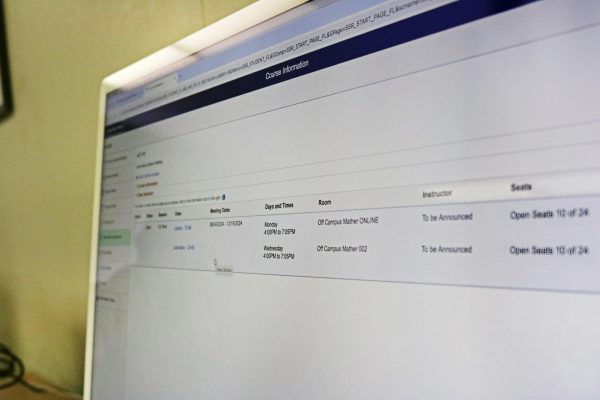Accessibility issues are equitability issues
Improvements must be made across the LRCCD to ensure success for all students
By making improvements to Canvas modules, class schedules and tech needs, education can become more equitable to every student. (Photo via Pixabay)
All campuses in the Los Rios Community College District have been closed for almost a full year now due to the COVID-19 pandemic. The resulting lockdown has illuminated some of the issues with equitable accessibility to education for all students.
If the LRCCD wants all of its students to succeed academically, then it needs to ensure that all of its students have equitable accessibility to education and the tools to help them learn. The LRCCD must recognize all structural barriers to accessibility and how eliminating them can go a long way in making these uncertain times a little easier for students and staff to manage.
Canvas, the learning management system that LRCCD uses for distance learning, is available for all students to use, but it lacks mandated accessibility tools for every course. While making modules on Canvas, professors have the option of adding different ways for each module to be viewed, including an option for the text to be read aloud.
If it was a requirement for professors to edit a module to be easily accessible for everybody, it would be a step in the right direction to ensure that every student has the same chance to be successful. Having modules that are easily accessible to everyone is also something that would be beneficial to staff and students who also have vision troubles.
Even though the Canvas account is free, not all students have 24/7 access to a computer or reliable internet. Many students previously relied on their college’s library—not only for online assignments, but for textbook rentals and printer access.
Students in need of technology such as a Chromebook can receive one, but the information to get one is muddled. There is no ARC website page that allows students to request technology or learn where to get one.
The college has a Basic Needs Resources page, but for it to be efficient there should also be a page dedicated to the services that ARC directly provides, such as the Chromebook giveaways.
Many of the resources provided are based on zip code or income eligibility, which cannot provide for all students struggling during this time. Some students may have had a decent income, but because of the pandemic their hours have been cut.
Canvas accessibility isn’t the only issue when it comes to student success. Signing up for classes can be a lot more stressful than it needs to be because of the lack of transparency to whether the class is synchronous or asynchronous.
Class options often show days and times to be “TBA” when the class is asynchronous. If class options were clearly labeled either “synchronous” or “asynchronous,” it would be a lot easier for students to understand and might even make enrollment go up, because students know exactly what they are signing up for.
When it comes to being able to access classes and class work or not, the financial situation of the student or teacher can be a large factor.
While financial aid is offered by ARC to students, it may not be enough to cover costs during COVID-19.
Students’ accessibility to classes also lies in their finances. When registering for classes, there can be many hidden fees, like the Universal Transit Pass and the ARC Student Representation Fee. The price of books and specific technology possibly needed for the class are also extra fees that every student might not be able to afford.
Students should have the full cost of the class provided in the description before paying to enroll in the class, so the student can make the best financial decision for themselves. Otherwise they may pick a class that is expensive, but by the time they realize that, alternative classes could be filled, possibly forcing that student to drop that class, losing that accessibility to their education.
Students must now rely on their own home WiFi for all of their classes, as they cannot use the campus WiFi. This can limit accessibility through cost, as students may not only be possibly paying for WiFi, but strong enough WiFi so that their classes won’t crash when others use the WiFi. Teachers also carry this financial burden as their WiFi connection must be strong enough to host Zoom class meetings.
Across the city of the Sacramento region, many students may have limited access to WiFi and may be financially forced to remain living in a location with poorer WiFi availability.
ARC’s Financial Aid webpage has helpful information on how to sign up for the Free Application for Federal Student Aid and other programs, like the federal work study, which offers students jobs to pay for extra expenses, but the hours for this program are limited and in no way are enough for livable wages. The Financial Aid page should have more information about COVID-19-related financial relief on it to help students who might be ineligible for financial aid and still financially hurting.
The LRCCD must act now by making some improvements to the way things are done, which will make the online experience easier to manage and lower some of the stress of both students and staff.











